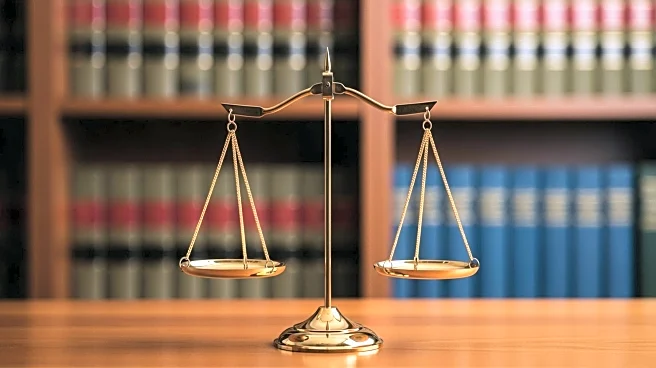What's Happening?
Alex Acosta, who served as the U.S. attorney for the Southern District of Florida and later as labor secretary under President Trump, defended his handling of the 2008 plea deal with Jeffrey Epstein during a closed-door interview with the House Oversight
Committee. Acosta argued that taking Epstein's case to federal trial would have been a 'crapshoot' due to evidentiary challenges, including inconsistent victim testimonies and jurisdictional issues. The plea deal allowed Epstein to avoid a federal trial and serve 13 months in prison for state prostitution charges. Acosta resigned as labor secretary in 2019 following public backlash over the deal, which was criticized as overly lenient.
Why It's Important?
The plea deal with Epstein has been a focal point of criticism, raising questions about the justice system's handling of cases involving powerful individuals. Acosta's defense of the agreement highlights the complexities prosecutors face in cases with significant public interest and media scrutiny. The congressional investigation into Epstein's case reflects ongoing demands for transparency and accountability in legal proceedings involving high-profile figures. The outcome of this investigation could influence public trust in the judicial process and impact future policy decisions regarding prosecutorial discretion and victim rights.
What's Next?
The House Oversight Committee's investigation into Epstein's case continues, with potential implications for how similar cases are handled in the future. Acosta's testimony may lead to further inquiries into the decision-making processes of federal prosecutors and the role of political pressure in legal outcomes. The committee's findings could prompt legislative changes aimed at ensuring more rigorous oversight and transparency in plea agreements, particularly in cases involving allegations of sexual misconduct and exploitation.
Beyond the Headlines
Acosta's defense of the plea deal underscores broader ethical and legal challenges in balancing prosecutorial discretion with public expectations for justice. The case raises questions about the influence of wealth and power in legal outcomes and the adequacy of existing legal frameworks to address crimes involving vulnerable populations. The investigation may also shed light on systemic issues within the justice system, including the treatment of victims and the effectiveness of current laws in deterring and punishing sexual exploitation.

















